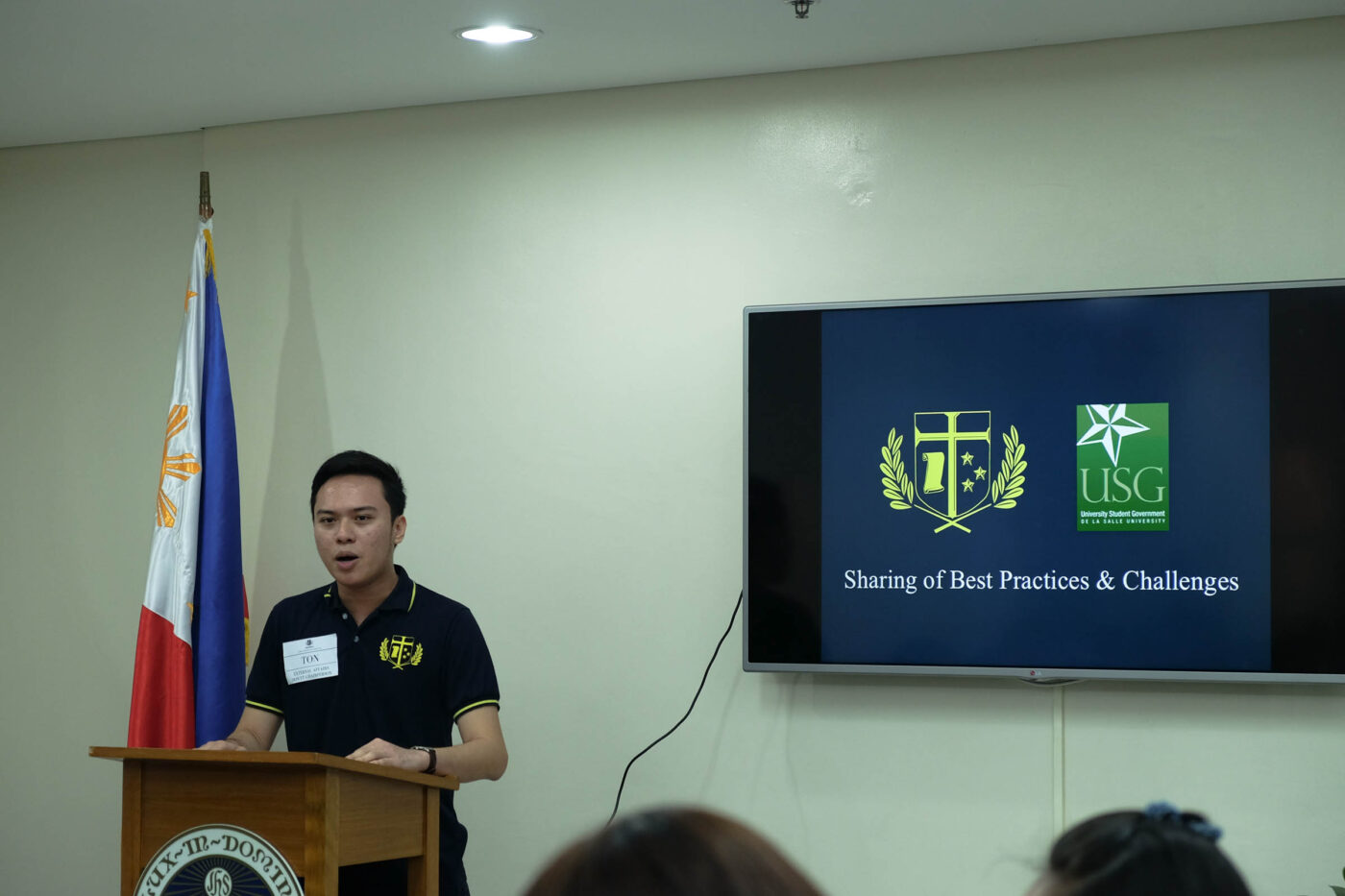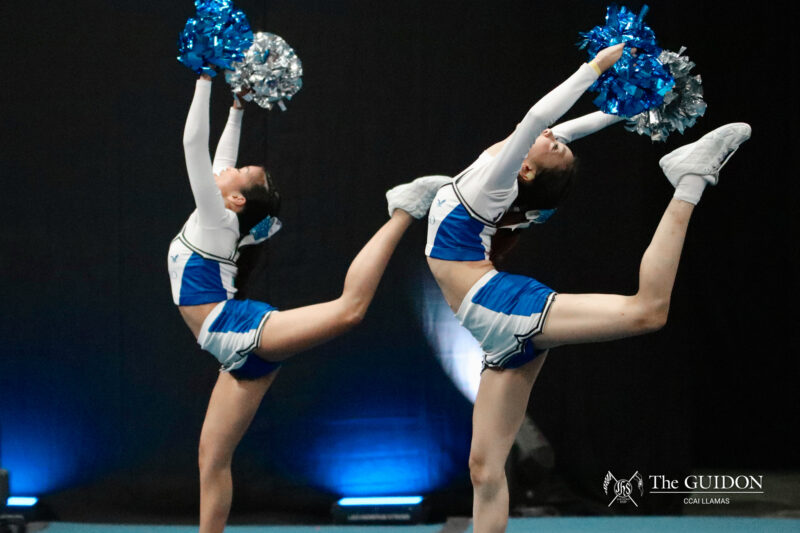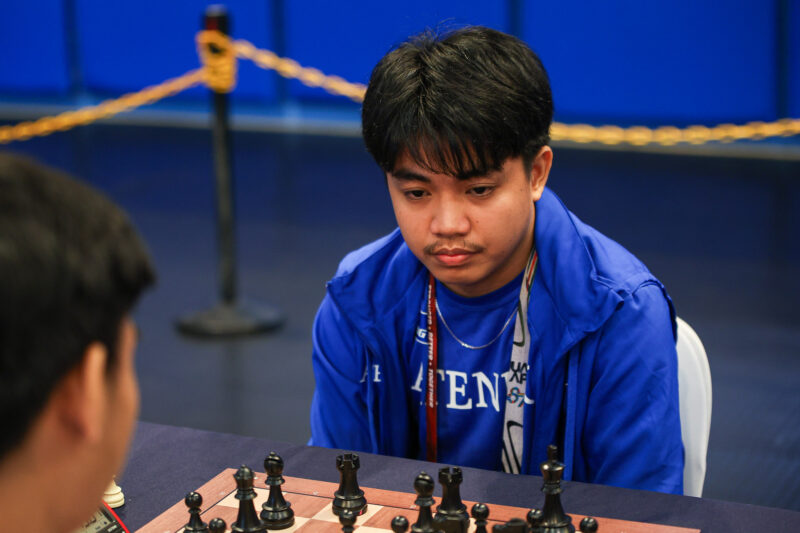IN AN effort to establish a formal relationship and to have future collaborations, the Sanggunian ng mga Paaralang Loyola welcomed the University Student Government (USG) of De La Salle University (DLSU) during a bilateral meeting on April 8 at the Leong Hall Conference Room 4.
Present in the meeting were Sanggunian Moderator Dan Ephraim Casiño, Sanggunian Coordinator Luigi Del Rosario, External Affairs Chairperson Saje Molato, Internal Affairs Chairperson Ele Gealogo, Central Board Representative Railey Montalan, School Board Representative Carmela Vinzon, External Affairs Deputy Chairperson Kristoni Go, and members of the Sanggunian outer circle.
Meanwhile, participating USG members included USG President Pramela Menghrajani, Student Council and Student Government Linkages (SCSG) Director Marielle Lapidario, Chief of Staff KC Untalan, College of Liberal Arts President Matthew Yabut, Outgoing Deputy Chief of Staff Alvaro Rama, and The Lasallian Editor-in-Chief Rai Mamac.
The two student councils discussed and shared various practices and challenges in student governance in order to help each other improve and learn from each other’s experiences.
In his opening remarks, Casiño explained that one of the meeting’s objectives is promoting a relationship between the two schools.
“I hope each of you would also share about the institutional and personal challenges you’ve faced. I believe that this can help us get a perspective [in realizing] that we go through the same things in spite of us being rival schools,” he explained.
Sharing of best practices
According to Del Rosario, the Sanggunian essentially works on four pillars, namely Student Representation, Basic Services, Students’ Rights, and Student Mobilization.
As elected representatives, the Sanggunian ensures representation on a student level, an administrative level, and a national level.
Basic Services, on the other hand, is met through the Department of Student Welfare and Services in order to ensure that the academic needs of students are met.
Meanwhile, the Students’ Rights serve as a check and balance for the Magna Carta that forms the agreement between the student body and the school administration.
The Sanggunian also has the capacity to gather the student body towards a certain goal through Student Mobilization.
Meanwhile, Menghrajani explained that the USG operates under four Key Goals, namely Collaborative Governance, Active Student Citizenry, Integrated Lasallian Formation, and a Progressive Learning Environment.
Keeping these goals in mind, she explains that the USG observes organizational relations through the convening of sectors.
They also observe constant consultation and communication with the organizations to check on their various activities and compliance with student conduct.
Moreover, the USG ensures that Student Representation is met through various committees that focus on different matters such as student fees, facilities management and enrollment.
Reciprocating aid
According to Menghrajani, one of two reasons the USG wanted to collaborate with the Sanggunian was to inquire about the Disaster Response and Management (DReaM) Team.
Menghrajani explained that disaster preparedness is a timely issue that DLSU has not been responsive enough to, whereas the Sanggunian has been very organized in these matters.
“Disaster preparedness [and relief] is a timely issue that we haven’t responded to concretely and sustainably for the past few years. With the pressure given by [students and administration], I thought to myself, why not ask [help from an organization] that has already done it?” she noted.
Menghrajani added that the meeting can also open doors for future partnerships.
“The biggest challenge now is to collaborate with others outside. We want to inculcate in everyone that your responsibility isn’t only inside the school [but also] extends to outside of [it],” she said.
The Sanggunian questioned student government relevance, a predominant issue in the Loyola Schools.
“La Salle is pretty known for having a very strong political party spirit. In your opinion, what makes USG relevant to the students? How do they still want to participate in student governance? The word apathetic gets thrown around here a lot,” asked Del Rosario.
The USG responded by saying that visibility and responsiveness is key in maintaining the students’ interest to be involved with the student government.
“In my opinion, students are not apathetic; they have political fatigue. Students really do care, it’s just that they should know what is happening. It really is on the presence and availability of the representatives. As student leaders, to make ourselves relevant to them, we really interact with them,” Menghrajani said.
Rama mentioned an instance wherein a concern about the installment of bidets was relayed to the administration, and the issue was addressed immediately. He said that this type of responsiveness is what helps make the students engaged with the USG.
“It’s a matter of how you do your job. We voiced out [their concern] to our meetings with the admin, and they were able to have [the bidets] installed. I think that it’s also the results that they see: that we’re not just all talk. It’s what we give back to the students that keeps them happy with what we do,” he added.
A relationship beyond sports
As a result of the meeting, the USG is looking into sharing more of their practices as a government to the Sanggunian, as well as incorporating some of the Sanggunian’s in DLSU.
“We are interested in looking into your carpool system, representation in the administration councils, financial transparency, and the DReaM Team,” said Menghrajani.
Menghrajani further explained that the USG sees DLSU and the Ateneo opening up to each other for collaborative initiatives despite being rival schools.
“There will always be those different La Sallian and Atenean identities due to different core values, but I hope that initiatives like this will open the doors for people to say that we look beyond sports,” said Menghrajani.
Meanwhile, Del Rosario explained that the Sanggunian hopes to incorporate the practices the USG does to make themselves relevant to the students.
“I think that’s where schools should collaborate, especially if it means that the Sanggunian [would be] able to bring the students to some sort of Atenean identity that we cannot do right now. I want to learn from the USG not only what you do best, but how you do it to the people you serve,” said Del Rosario.







